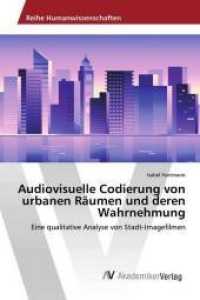基本説明
Here, a political scientist, an economist, and a judge work together to construct a unified theory of judicial decision-making.
Full Description
Judges play a central role in the American legal system, but their behavior as decision-makers is not well understood, even among themselves. The system permits judges to be quite secretive (and most of them are), so indirect methods are required to make sense of their behavior. Here, a political scientist, an economist, and a judge work together to construct a unified theory of judicial decision-making. Using statistical methods to test hypotheses, they dispel the mystery of how judicial decisions in district courts, circuit courts, and the Supreme Court are made.
The authors derive their hypotheses from a labor-market model, which allows them to consider judges as they would any other economic actors: as self-interested individuals motivated by both the pecuniary and non-pecuniary aspects of their work. In the authors' view, this model describes judicial behavior better than either the traditional "legalist" theory, which sees judges as automatons who mechanically apply the law to the facts, or the current dominant theory in political science, which exaggerates the ideological component in judicial behavior. Ideology does figure into decision-making at all levels of the federal judiciary, the authors find, but its influence is not uniform. It diminishes as one moves down the judicial hierarchy from the Supreme Court to the courts of appeals to the district courts. As The Behavior of Federal Judges demonstrates, the good news is that ideology does not extinguish the influence of other components in judicial decision-making. Federal judges are not just robots or politicians in robes.








